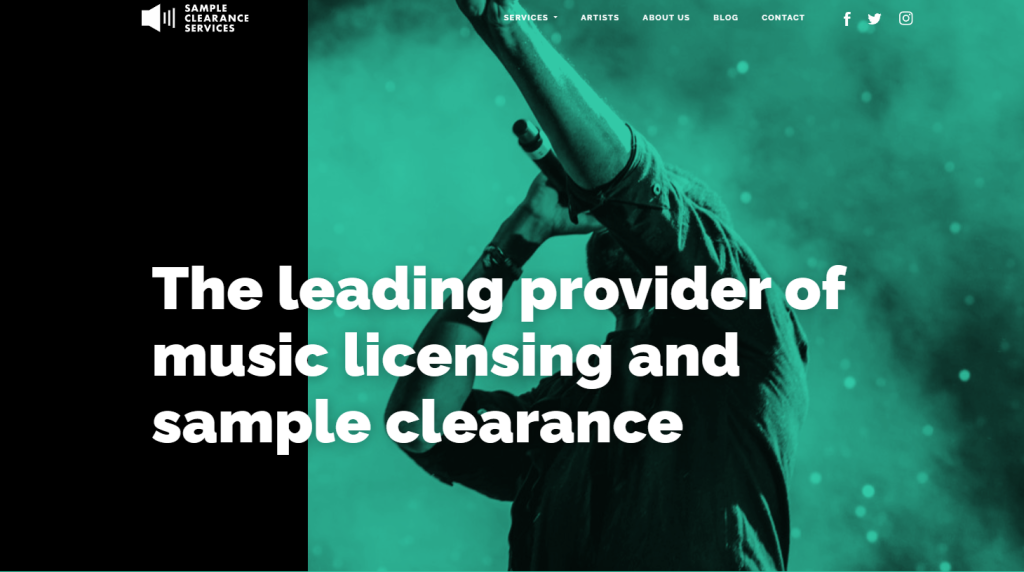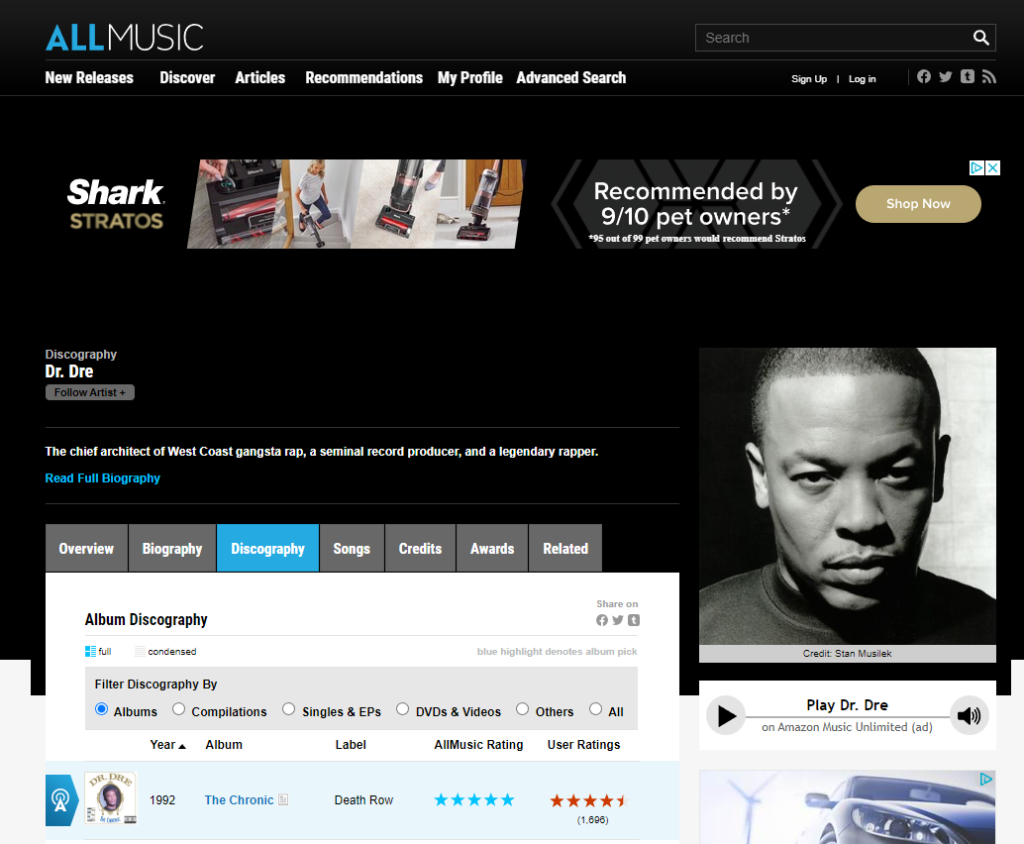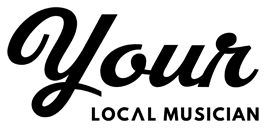The process of how to sample a song legally can be a confusing subject to grasp if you’re not familiar with music and copyright law.
While the experience can differ from song to song, depending on who you are dealing with, there are a number of repeatable processes and parties that you need to contact in order to increase your chances of being able to use the sample legally.
Your position in the industry can also affect your chances of being granted permission, with some record labels and copyright owners setting outlandish terms that make an arrangement finically prohibitive for an average independent artist.
So, If you’re planning on releasing a song that samples copyrighted music and you’re an independent artist, follow the processes below in order to clear the sample legally and eliminate the risk of being sued for copyright infringement.
Table of Contents
What permission do I need to legally sample a song?
There are two types of licenses that you need to acquire in order to gain permission to sample a song legally:
- Master recording license
- Underlying composition license
A master-use license is obtained from the owner of the master recording, which is usually the record label that released the song. You will need this type of permission in order to use any part of the original recording in your new song, even if it’s just a small section or sample.
An underlying composition license, on the other hand, is obtained from the copyright owner of the composition (usually the songwriter or publisher).
The licenses you need in order to sample music differ significantly from the mechanical license you need to release a cover version of a song, which can now be handled by distributors like Distrokid for a small fee of $12 per year and don’t require any permissions to be granted from the record label, publisher or songwriter, mechanical licenses can also be acquired through the Harry Fox Agency, Songfile, Easy Song or the copyright holder themselves.
For sampling, the owner doesn’t have to grant you permission just because you asked for it, in fact, they can pretty much dictate the terms however they please, which includes how you use the sample.
How to find the publisher of the composition you’re sampling
The easiest way to find out the publisher of the song you want to sample is to use a resource like ASCAP or BMI’s public catalogues.
Once you know the publisher, you can try contacting the writer directly through their music publishing company or contact the songwriter if they self-publish.
If you can’t find the publisher using either of those methods, another option is to hire a music lawyer who can go through the sample clearance process for you or a clearance company experienced in research and licensing.
One of the most reputable sample clearance companies is sampleclearance.com which has acquired licenses from countless rights holders.

How to find the label that owns the recording you want to sample
One way to find out which label owns the song is to look up the artist on AllMusic.com and find their discography page, if you know what album the song you’re sampling is on, this will display what record label the song album was released under.
Below you can see an example using Dr. Dre’s album “The Chronic”

If that doesn’t work, Googling the name of the album and the artist proceeded by “record label” should point you in the right direction.
As a last resort, if you have a physical copy of the album, details about the record label should be on the back of it.
How will royalties work if my use of the sample is approved?
If you manage to get approved by the songwriter, original artist, record label or publisher, standard terms are usually a 50/50 royalty split and often in many cases, you will have to pay an advance for the use of the sample which can often be between $2000 to $5000 for the rights to the master, and an additional $2000 to $5000 for the publishing rights.
However, the arrangement that’s agreed to will be different depending on who you are dealing with, some are very strict, and some people can be very lenient.
What if you can’t get in touch with the copyright holders?
If you can’t get in touch with the owner of the song or the copyright owner to grant you legal use of the sample, then you simply won’t be able to release your production, whether you’re profiting from it or not.
Many major record companies simply don’t want to deal with clearance requests from independent musicians, as they see it not being worth their time, if you don’t have an audience big enough and engaged enough that they can make money out of you are likely to be given the cold shoulder.
Sampling without proper licensing has been happening for years and often feels like something only a fool would partake in, which often leads to lots of misscomunicatona and bogus information being spread, i will attempt to demystify some of the common misconceptions below.
Additionally, if you release a song without the right permissions and the record label, publisher or artist finds out, you can be ordered to pay money damages and give away a percentage of the royalties, or worse be forced to take the song down from distribution platforms.
Sampling Myths
Can I sample copyrighted music without permission if it’s less than 6 seconds of audio?
One of the biggest myths out there is that you can legally sample a song if the length of the sample is under 6 seconds, this isn’t true, it doesn’t matter about the length of the sample at all, one of the most famous cases is that of Vanilla Ice’s use of the baseline from the song “Under Pressure” by Queen, which is only 3 seconds long, originally Queen or David Bowie were not credited as writers or received any royalties, once the song was released Freddie Mercury initiated a lawsuit which the band won, the percentage they own is still unknown.
“I changed it”
Changing the original sound recording would mean remaking the section of the song you want to use. which is known as an interpolation ad that means that you would not have to license the original song. However, you would still have to obtain a license for the rights to the composition.
“I’m not making any money off of it”
Even if you’re not making money of your song, this doesn’t mean that you’re protected from copyright infringement due to your non-profit status, copyright and fair use laws apply to all uses of copyrighted work, by no means can you sample a song if you don’t have the correct license.
“It’s fair use”
Simply sampling a song would not qualify you for fair use, to obtain fair use your use of the sample or lyrics, would need to fall under one of the following categories:
- Parody
- Criticism
- News Reporting
- Research
- Education
“It’s an obscure song”
Just because a song might be obscure doesn’t mean that you can sample it legally, even if the artist you’re sampling doesn’t have a large audience and isn’t signed, legally you would still have to obtain a license (written agreement) from them to use their music.
Sampling music from a major catalogue
Use a library of pre-cleared samples
An alternative route to traditional music licensing is sampling libraries of pre-cleared samples, there are several companies out there that operate using this method, one of which is Cinephonix.com.
What is pre-cleared music?
Pre-cleared music refers to the rights that are held in the music, companies that own libraries of music will buy the rights from the composer and make their compositions easy to access to those who require easy licensing, because they only have to buy a license from the company that owns the composition
Are There Alternatives To Sampling?
There are certainly many preferable options these days as opposed to traditional music licensing, one of which is using samples from sample pack companies such as Your Local Musician, whose samples are all 100% royalty-free meaning that there is no need to pay hefty licensing fees, just a one off upfront payment for a sample pack of sounds.
The other is to use companies such as Tracklib, which is a subscription service for cleared samples, this included full access to thousands of songs from many different genres, bands and artists for only $5.99 per month with a free 14-day trial, many popular artists use Tracklib such as J. Cole, Kendrick Lamar, Young M.A, Brockhampton, DJ Khaled and Kenny Beats.
Frequently Asked Questions
Is sample-based music on its way out?
Can I use copyrighted music if I give credit?
No, unfortunately, you cannot use copyrighted music even if you give credit, as this would still be considered copyright infringement.
The only way to use copyrighted music legally is by obtaining a license from the copyright holder.







